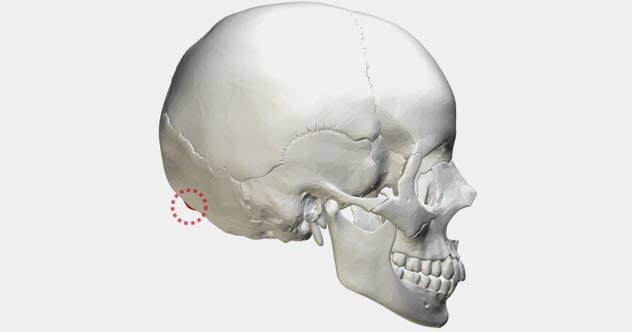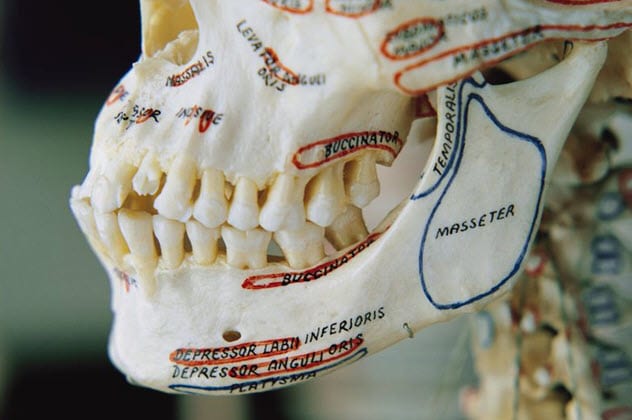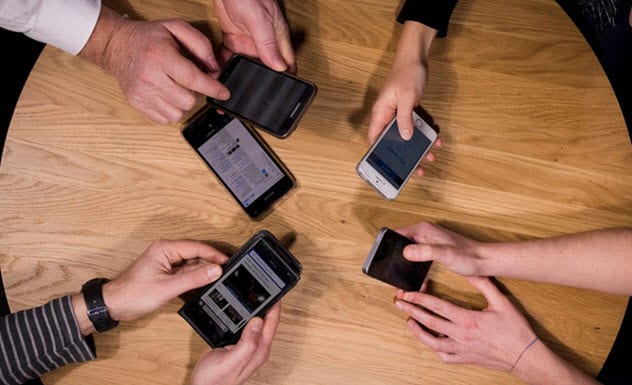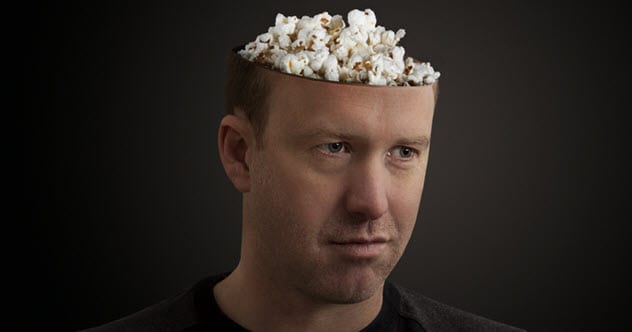 Movies and TV
Movies and TV  Movies and TV
Movies and TV  Our World
Our World 10 Places with Geological Features That Shouldn’t Exist
 Crime
Crime 10 Dark Details of the “Bodies in the Barrels” Murders
 Animals
Animals The Animal Kingdom’s 10 Greatest Dance Moves
 Movies and TV
Movies and TV 10 Box Office Bombs That We Should Have Predicted in 2025
 History
History 10 Extreme Laws That Tried to Engineer Society
 History
History 10 “Modern” Problems with Surprising Historical Analogs
 Health
Health 10 Everyday Activities That Secretly Alter Consciousness
 History
History Top 10 Historical Disasters Caused by Someone Calling in Sick
 Animals
Animals 10 New Shark Secrets That Recently Dropped
 Movies and TV
Movies and TV 10 Weird Ways That TV Shows Were Censored
 Our World
Our World 10 Places with Geological Features That Shouldn’t Exist
 Crime
Crime 10 Dark Details of the “Bodies in the Barrels” Murders
Who's Behind Listverse?

Jamie Frater
Head Editor
Jamie founded Listverse due to an insatiable desire to share fascinating, obscure, and bizarre facts. He has been a guest speaker on numerous national radio and television stations and is a five time published author.
More About Us Animals
Animals The Animal Kingdom’s 10 Greatest Dance Moves
 Movies and TV
Movies and TV 10 Box Office Bombs That We Should Have Predicted in 2025
 History
History 10 Extreme Laws That Tried to Engineer Society
 History
History 10 “Modern” Problems with Surprising Historical Analogs
 Health
Health 10 Everyday Activities That Secretly Alter Consciousness
 History
History Top 10 Historical Disasters Caused by Someone Calling in Sick
 Animals
Animals 10 New Shark Secrets That Recently Dropped
10 Ways Modern Technology Is Destroying Natural Selection
Charles Darwin used his theory of natural selection to explain evolution. That is, organisms are able to adapt and survive in their environment better than their predecessors did. These organisms pass their most favorable features to their offspring, which continue the cycle.
However, technology is already interfering with natural selection—at least in humans. Almost every tech item out there today—from our smartphones to the massive advances in medicine—are altering our lives faster than natural selection could.
People with unfavorable conditions are surviving and passing these traits to their offspring. At the same time, others are developing new health challenges causes by overreliance on technology.
10 Cesarean Sections Make Women’s Hips Narrower

Cesarean sections are leaving women with smaller pelvises. Centuries ago, women with small pelvises died during childbirth along with their children, who could possess the genes for small pelvises.
However, these women are surviving these days as C-sections become mainstream. They are also able to birth children with the genes and even female children with narrow pelvises, who also pass the trait to their offspring. Studies have shown that 36 of every 1,000 children born today have a narrow pelvis. In the 1960s, it was just 30 of every 1,000.[1]
At this point, some would start to wonder why natural selection did not leave all women with large pelvises. That is because the human body evolved to prefer smaller babies that could pass through the narrower pelvises instead of larger babies that could pass through wider pelvises.
Interestingly, C-sections are slowly changing this. Babies are becoming larger despite their mothers’ smaller pelvises. This means that C-sections will become more common in the future.
9 Mobile Phones Are Causing Horns To Grow In Our Skulls

We frequently bend our necks downward to interact with our smartphones. This is causing the development of a bony, hornlike structure at the lower end of the back of our skulls. Scientists call these little horns “external occipital protuberances.”
The horns are growing because the bent head delivers severe pressure at the point where the neck muscles meet the skull. The skull responds by elongating the bone at its rear tip, causing the extension. People with an external occipital protuberance can often feel it with their fingers. You may even be able to see it on a bald person.
An external occipital protuberance may appear no matter what we have in our hands or right in front of us. The only condition is that we bend our heads frequently, which is what smartphones cause us to do. Books do, too, but not as frequently as smartphones. Besides, not everyone reads books.[2]
8 Search Engines Are Making Us Forgetful

Imagine you were asked some random question such as when Martin Van Buren became the president of the United States? What do you do? Recall the answer without batting an eye, or fire up your search engine? Most people will use their search engines because they probably do not remember the date offhand. Some do not even know he was a former US president.
This is what researchers call the “Google effect,” the likelihood of forgetting information you could quickly search for on the Internet. The condition was revealed in a 2011 study by researchers Betsy Sparrow, Jenny Liu, and Daniel Wegner.[3]
The researchers found that people often considered checking the Internet whenever they were asked questions they could not answer. They were also likelier to forget information if they knew it would be available somewhere—even if it was not the Internet. An example would be your spouse’s phone number stored on your phone.
The Google effect happens because we often remember significant information and forget unimportant facts. However, we can also forget the important info if we can access it somewhere. As to our original question, no need to Google it—Martin Van Buren became president in 1837.
7 Farming Made Our Jaws Smaller

Early hunter-gatherers had large faces with prominent jaws and teeth. However, all these started to disappear when we dumped the hunter-gatherer lifestyle for farming 12,000 years ago. Today, we are left with small jaws without enough space for our teeth.
Hunter-gatherers had large jaws because they did a lot of chewing. They ate uncooked meat and plants that were often tough and required lots of jaw strength to cut and chew. This made their jaws stronger. However, our jaws became weaker as we switched to farming softer crops that did not require superior jaw strength to chew. Our jaws further weakened as we switched to cooking our meals.[4]
The effects of our newfound farming lifestyle did not stop there. The switch also made our bones lighter and less dense, most especially around the joints. However, this was not caused by the softer food but the less strenuous lifestyle of the farmers who did not need to stalk, chase, and kill prey like the hunter-gatherers.
6 Processed Foods Are Changing Children’s Faces

The food eaten by children often determines the strength and shape of their faces—skulls, jaws, and all. However, the majority of children born nowadays have abnormal faces caused by the massive amounts of processed foods they start to consume right after birth.
This is because natural foods contain enough nutrients required for proper facial development. Besides, as we mentioned earlier, natural foods often force children to chew with their jaws, making their jaws and skulls considerably stronger. Processed foods often reduce the possibility of chewing, leading to considerably weaker jaws.[5]
Today, our overdependence on processed foods has made our skulls 5–10 percent smaller than those of early humans from the Paleolithic Era. This problem has been observed in animals, too. Young animals reared on processed foods often end up with jaw problems that are similar to those of humans.
5 Social Media Is Destroying Our Lives

Social media has been linked to a myriad of problems including depression, hyperactivity, anxiety, low self-esteem, and loss of concentration. This is worse in teenagers who form the bulk of social media users. They often suffer from the fear of missing out (FOMO), which makes them check their social media handles more than necessary.
However, the link between social media and these health problems is blurred as there is not enough research to establish such associations. Some critics even say that social media only appears to cause depression and loneliness because most users already have those characteristics and only turn to social media to meet people.
The critics say this even though a study has already found that social media does cause depression and loneliness. The study involved 143 University of Pennsylvania students split into two groups. One group reduced their time on social media while the other continued to use it normally.
The study revealed that the individuals who spent less time on social media enjoyed improved mental health and lower levels of depression and loneliness than people who used it more often.
Interestingly, FOMO and anxiety levels decreased in both groups even though researchers expected higher levels in people who used social media more frequently. Researchers believe that this was because the users from both groups became more aware of their use of social media while the study lasted.[6]
4 Smartphones Have Reduced Our Attention Span

Our brains have a very advanced concept of time. They are able to predict future events as we engage in our daily activities. For instance, the brain determines the best time to stretch your hand for a handshake—just so your hand will meet the other person’s hand at the right moment.
Our brains also apply this concept of time when we interact with our smartphones. For instance, if you check your phone every five minutes, your brain soon predicts this behavior and reminds you to check your phone at five-minute intervals.[7]
Before long, the habit interferes with your attention span, making you unable to concentrate on whatever you are doing. Instead, you are thinking about grabbing your phone to see the latest happenings on social media. Studies have found that phone addicts make less use of the brain regions responsible for focus. They also require greater efforts to concentrate on a task.
3 The Internet Is Making Us Unable To Cope Offline

In 2011, Professor David Levy of the University of Washington’s Information School coined the term “popcorn brain” to describe the effects of technology on our cognitive abilities (that is, our abilities to think and recall information). People with popcorn brain are so engrossed in their online lives that they become uninterested and unable to cope with their lives offline.
Levy came up with this concept after investigating how the Internet affected our lives offline. In his study, he discovered that we are always interested in reading every new email and message and visiting websites, hoping to find some new information. Our brain soon becomes used to this trend and often wants us to seek some new information every time.
This often leaves us with short attention spans, high expectations of finding some new information, and the inability to live our normal lives offline. Interestingly, Levy’s study supports earlier research that revealed that students who spent 10 hours a day on the Internet have lower cognitive abilities than students who spent just two hours.[8]
2 Technology Is Causing Nearsightedness In Children

Myopia (nearsightedness) is the latest health problem linked to the infiltration of technology into our daily lives. The statistics are terrible in high-tech countries like China where 90 percent of teenagers suffer from myopia. Sixty years ago, only 10–-20 percent of Chinese teenagers suffered from nearsightedness.
Myopia levels are also rising in Europe, the United States, and South Korea. In Seoul, over 96 percent of 19-year-old males suffer from myopia. Estimates indicate that 2.5 billion people (one-third of the world’s population) will suffer from myopia by 2020.
Teenagers are developing myopia because they spend so much time indoors and away from natural sunlight, which is important for the perfect development of the eyes. This is why myopia levels are low among Australian teenagers, who spend lots of time outside. Researchers believe that this trend could be reversed by exposing children to three hours of sunlight every day.[9]
1 Smartphones Are Causing Insomnia

Smartphones always get a bad rap for interfering with sleep. Well! That is because they really do. Taking your smartphone to bed is the best way to end up with insomnia.
Smartphones cause insomnia because they are distracting. The sounds and vibrations of calls, notifications, and messages can stop people from sleeping or even wake them from sleep. People who take their phones to bed can also end up checking social media and more, causing them to sleep much later than they intended.
If that was not enough, smartphones and almost every other tech gadget with a screen emits a blue light that the brain mistakes for daylight. This causes the brain to lower the secretion of melatonin—the hormone that tells our body it is time for bed. This is usually not a problem during the day but quickly becomes one when we are trying to get some sleep at night.[10]
Read more frightening facts about the negative effects of modern technology on 10 Ways Technology Is Changing You For The Worse and 10 Unintended Side Effects Of Newly Emerging Technologies.








